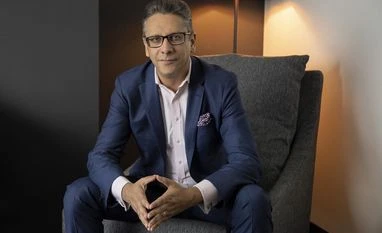Luxury carmaker BMW expects that the share of electric vehicles (EVs) in its total sales will go beyond 30% by 2025 from the current 10%, its India President Vikram Pawah told Business Standard in an interview.
“I can clearly see that the electric car segment would have more than a 30 percent share (in the order book) by 2025 because of the product range that we have. It may be even higher than 30 percent,” Pawah said.
He said that out of the current order book of 5,500 cars, 600 are EVs.
“This clearly shows that the demand for electric cars is above 10%, and I expect this share to grow to 15% this year itself,” he said. Last year, EVs’ share in the order book was about 7-8%. Of the total 21 car models BMW sells in India, four are EVs.
Pawah also said that cars running on diesel and petrol will coexist with electric cars in the premium segment.
“These technologies will always coexist... The share of diesel-run vehicles has come down in the last 3-4 years. However, the share of diesel-run vehicles is still substantial,” he said.
“Currently, diesel-run vehicles and petrol-run vehicles have a share of 40% and 50%, respectively, in the company’s order book. I do not see any of these technologies disappearing from our (premium) segment in India,” he said.
Pawah said that as the supply of auto parts is improving globally, the company expects to reduce its waiting period for cars and two-wheelers from 4-6 months right now to 3 months from June onwards.
“Certain products like EVs will still have a higher waiting period but other products should be in that 3-month range,” he mentioned.
In 2022, BMW Group India sold 11,981 cars, a 34.95% increase, and 7,282 two-wheelers, a 40.2% increase. Currently, the company has an order book for 4,500 two-wheelers.
“It is really good to see that all eight launches (cars and motorcycles) that we did between December and January are giving us a lot of traction right now. We are expecting a very solid year based on this,” he mentioned. The German company sells 22 motorcycle models in India.
In India, the demand will continue to be strong because the fundamentals of the Indian economy and local consumption are very strong, Pawah said, adding that two-thirds of the company’s product lineup is either new or refreshed, which gives it a further benefit in terms of pulling more demand.
In its product portfolio, the company produces 13 cars and three motorcycles in India. “About 95 percent of what we sell in India is locally produced,” he mentioned.
At the moment, electric cars are used more for intra-city transportation.
“The charging network is growing along the highways, and it would take a couple of years...Once that grows, this share would go even higher. 30 percent (by 2025) is quite achievable,” he stated.
Pawah said the company will have 12 full EVs in its global portfolio by the end of this year. “The intention would be to bring all of them to India over a period of time,” he added.
Currently, 50 percent of BMW’s total sales in India come from the top 10 cities: Mumbai, Bengaluru, Delhi, Gurugram, Pune, Ahmedabad, Chennai, Noida, Kolkata, and Hyderabad. Pawah said that the growth outside of these cities will be faster than in these 10 cities.
He said the semiconductor chip supply is improving, but the shortage issue is not completely resolved yet. “It is not just the semiconductor issue that is a problem. Other parts of the logistics supply chain, such as ships and containers, are also facing shortages, causing delays at the moment,” he added.
“I expect the supply to start easing from June onwards. Will it be completely resolved? Probably not,” he added.
Unlock 30+ premium stories daily hand-picked by our editors, across devices on browser and app.
Pick your 5 favourite companies, get a daily email with all news updates on them.
Full access to our intuitive epaper - clip, save, share articles from any device; newspaper archives from 2006.
Preferential invites to Business Standard events.
Curated newsletters on markets, personal finance, policy & politics, start-ups, technology, and more.
)